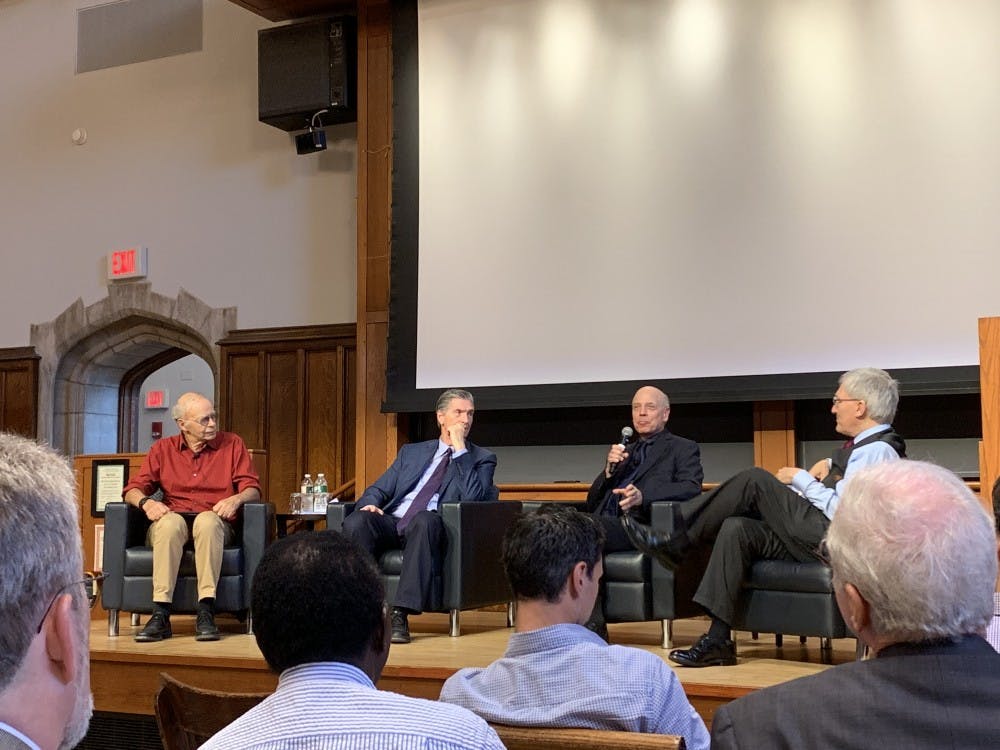Months after Jahi McMath, a young California resident, was declared brain dead, she could clearly respond to instructions to move certain parts of her body. Medically ambiguous cases such as Jahi’s were the subject of a public discussion, which raised questions of what it really means to be dead, held on Wednesday.
The seminar, moderated by Robert P. George, the McCormick Professor of Jurisprudence and Director of Princeton’s James Madison Program, featured D. Alan Shewmon, professor emeritus of neurology and pediatrics at UC Los Angeles; Patrick Lee, professor of philosophy and bioethics at Franciscan University of Steubenville; and Peter Singer, the Ira W. DeCamp Professor of Bioethics professor, spoke at the seminar.
George began by offering a brief history of the controversial practice of organ removal in brain dead patients before introducing the ethical question of whether it should ever be done.
“Should we abandon the dead donor rule and accept the idea that it’s morally acceptable for certain reasons, such as transplanting organs and saving lives of other people, to harvest organs from living but devastated individuals, or should we stick to the dead donor rule out of respect for people’s lives, even if those lives are regarded as extremely poor in quality?” George asked.
Shewmon used Jahi’s case, among others, to justify his argument that brain death is not synonymous with death in the traditional sense.
Lee disagreed.
“Total irreversible brain death is the death of a human being. After a brain death, we don’t have the same being that was there before. If there is a living organism there, it is not a human organism,” Lee said.
Lee’s philosophical stance raises new questions about what qualities need to be present for an organism to be classified as a human being. “In order to be a human being, you have to be a sentient being,” he said. Human beings, he noted, must display “the capacity to develop a brain.”
Singer was the final panelist to take the stage, and he explained that he, like Shewmon, believes that brain death does not constitute true death. He argued that MRI scans are often inefficient and inappropriate in determining whether one is truly, irreversibly devoid of consciousness, and that the practice should be altered.
“It’s interesting that there really hasn’t been a widespread move to stand up and say that we should do something about this,” Singer said. “We are taking organs from living human beings.”
In keeping with his well-known utilitarian views, Singer said that if an irreversible loss of consciousness could be determined with certainty, and that if a patient demonstrated such a loss, then no ethical objection to removing organs, even vital ones, and using them to benefit others would arise, because “it’s justifiable to say that there is no further benefit to that human being in continuing to live.”
The night ended with a brief question-and-answer session. The seminar, entitled “The Challenge to ‘Brain Death’: Are We Taking Organs from Living Human Beings, and If We Are, Does It Matter?” was held in McCosh Hall 50 on October 2 at 4:30 p.m.









